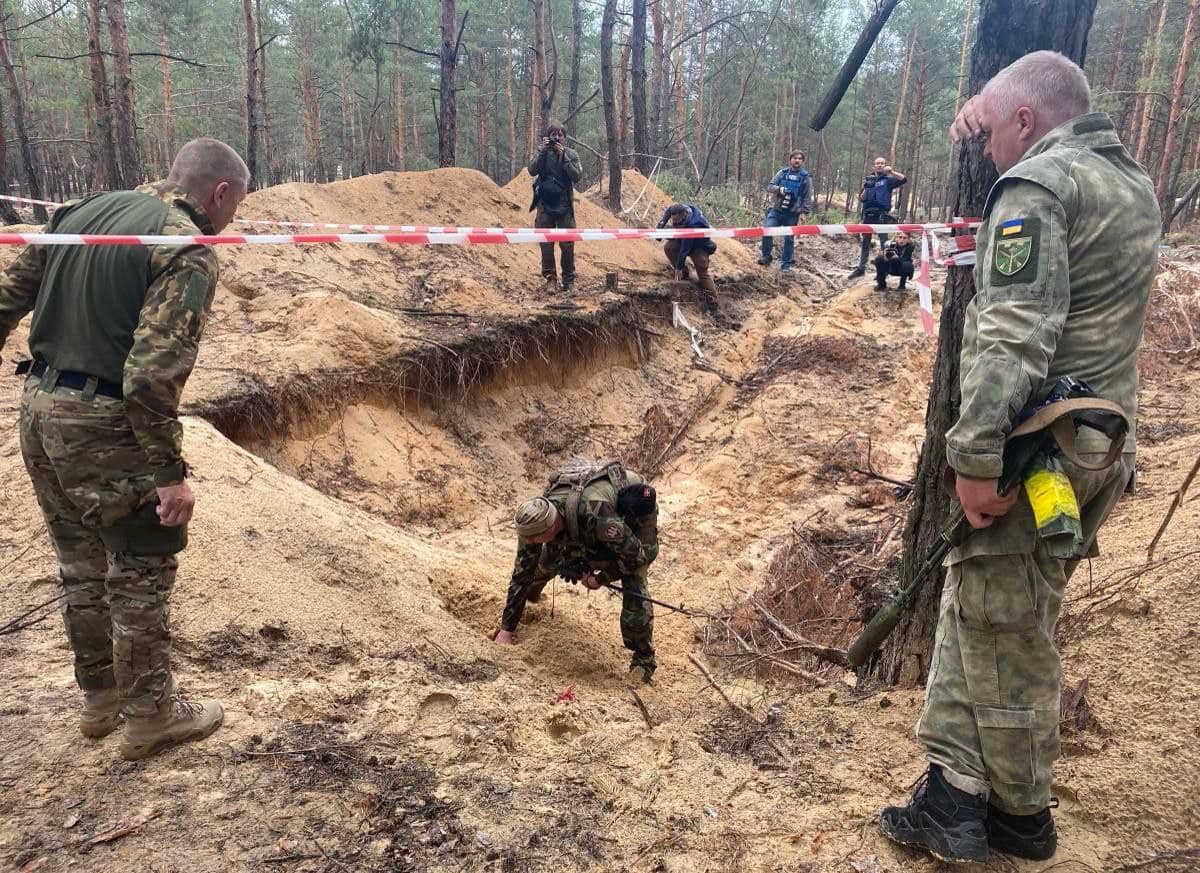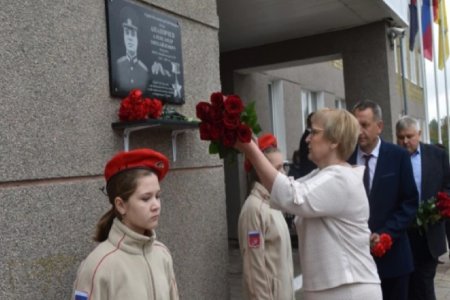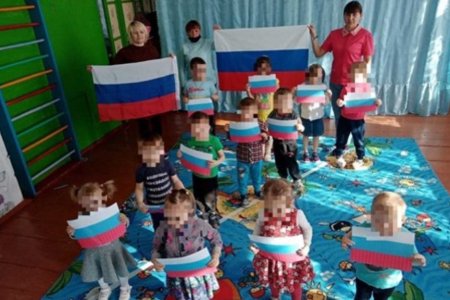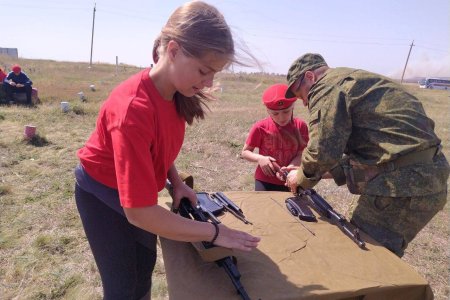
A draft bill that proposes to remove criminal liability for war crimes committed by Russian soldiers has passed its first reading in Russia’s State Duma. The bill does stipulate that such impunity would only cover crimes deemed to have been “in the interests of the Russian Federation” or its proxy Donbas ‘republics. However, since Russia’s military have been bombing hospitals and apartment blocks, abducting and torturing civilians since the beginning of the full-scale invasion, it is hard to imagine what, if any, crimes would not be written off. While more and more atrocities – extrajudicial killings; torture; rape and murder; and mass graves – came to light in Bucha (Kyiv oblast), Russian leader Vladimir Putin ‘honoured’ the likely perpetrators from the 64th motorized infantry brigade. His decree spoke of ‘mass heroism and daring, tenacity and courage”.
The new draft bill* purports to be about establishing Russian legislation on what it calls “new territory”, namely the four oblasts of Ukraine (Donetsk; Luhansk; Kherson and Zaporizhzhia) which Moscow is claiming to have made part of the Russian Federation. It was only back in September 2022, as Ukraine’s Armed Forces were already liberating parts of the Kherson oblast that Putin announced sham ‘referendums’ on occupied territory, and then swiftly claimed virtually 100% support for ‘joining Russia’. Annexation was, in this manner, ‘completed’ by 30 September 2022. No mention was made of the fact that none of these oblasts was fully under Russian occupation then, with that amount even smaller now.
Nonetheless, Russia’s imitation of a parliament, the State Duma, has now passed in its first reading draft law № 246425-8 ‘on the application of Russia’s criminal code and criminal procedure code on the territory of the Donetsk people’s republic; the Luhansk people’s republic; the Zaporizhzhia oblast and Kherson oblast’. In its analysis of the bill, the independent Russian ‘Advokatskaya ulitsa’ notes that it has been drawn up and tabled by “the chief creators of the legislation of recent years, senator Andrei Klishas and MP Pavel Krashennikov, as well as Iryna Pankina. The latter’s PhD in law was clearly sacrificed to her position as an MP of the ruling ‘United Russia’ party.
Most of the 13 pages of the bill are, the analysts write, what you might expect from legislation on regulating ‘integration’ of the four oblasts. Not all, however. Even by Russia’s standards of lawlessness, this is a record-breaker, and the point is not that Russia, as aggressor state, has no right to impose its legislation on illegally occupied Ukrainian territory. The bill proposes to waive criminal liability for any crime if this was, purportedly, committed “in defence of the interests of the Russian Federation.”
Article 2 § 1 of the bill states that crime and punishment for actions committed on the four parts of occupied Ukraine up till 30 September 2022 are to be ‘regulated’ by Russian legislation. Then, however, comes Article 2 § 2. This states that actions committed on the said territory, which are punishable under Ukrainian law, “are not criminal and punishable” if they “contain elements of a crime envisaged by the criminal code of the Russian Federation but were aimed at defending the interests of the Russian Federation; the Donetsk people’s republic or the Luhansk people’s republic or the legally protected interests of citizens or organizations of the Russian Federation”, or of those occupied territories.
The explanatory note states that this carte blanche applies only to crimes committed up until 30 September 2022. In fact, however, Advokatskaya ulitsa points out that the date is only mentioned in Article 2 § 1, “so if read literally the draft bill does not establish time limits for waiving criminal prosecution.”
All of the lawyers asked for their opinion are appalled by this draft law and the total lawlessness it proposes. Mikhail Benyash, a defence lawyer and himself a victim of persecution, comments that Russia is effectively saying that you can commit any crimes in its interest, and all will be forgiven. This, he says, is pure savagery. He assumes that the norm has been drawn up so as to not have to run to Putin all the time asking him to pardon this or that individual.
Anastasia Garina, Executive Director of the Memorial Centre for Human Rights Protection, notes that the draft bill as it stands contains absolutely no restrictions on its scope. Any crimes claimed to be “in defence of the interests of the Russian Federation and its cronies” are allowed. “Torture in the interests of the Russian Federation? Rape in the interests of the Russian Federation? Genocide in the interests of the Russian Federation? By all means!”
Nowhere in the draft bill itself, or in the explanatory note, is there any definition of what ‘in the interests of the Russian Federation’ is supposed to mean, or why it should be deemed to justify horrific crimes.
Russia’s imposition of its own flawed system, with additional carte blanche for repression, in occupied Crimea and Donbas, have already led to Freedom House rating both occupied areas as close to North Korea. Since its full-scale invasion on 24 February 2022, Russia has brought terror and lawlessness to any area of Ukraine that falls under its control, with the atrocities witnessed at Bucha, in Mariupol and Izium, among countless examples of grave war crimes. Attempts to whitewash these in Russian legislation are only further aggravating circumstances when it comes to liability for war crimes, crimes against humanity and genocide according to international law. All of this, however, requires Russia being held to account. Until such time, ‘laws’ aimed at allowing any war crimes and atrocities on Ukrainian territory are a terrifying precedent, which may prompt even worse atrocities from Russian soldiers and occupation ‘authorities’ assured of such blanket impunity.
* The bill should be available here: https://sozd.duma.gov.ru/bill/246425-8 If that link does not open, it can be found here https://www.garant.ru/files/5/5/1588055/234611671-234616981.pdf or try a search under its number and title: № 246425-8 "О применении положений Уголовного кодекса Российской Федерации и Уголовно-процессуального кодекса Российской Федерации на территориях Донецкой Народной Республики, Луганской Народной Республики, Запорожской области, Херсонской области"



